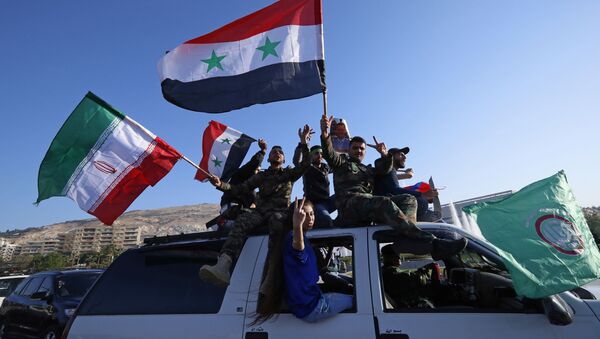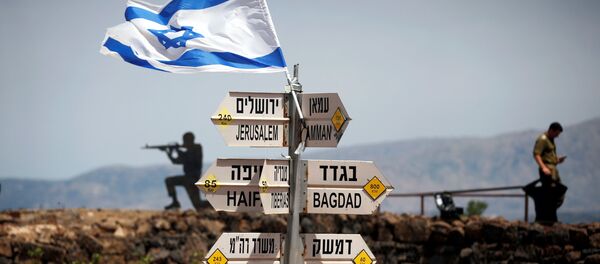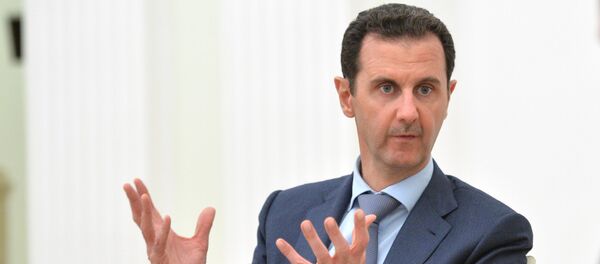Speaking in Brussels, Nasr Hariri, the head of the Syrian Negotiation Commission in the Geneva peace talks format, urged the West to find ways to limit Iranian influence in Syria.
"The role of Iran is getting bigger and bigger, at the expense of our people," Hariri said. "So we are supporting any international mechanism that could limit the influence of Iran in the region in general, and in our country in particular," he added.
The negotiator claims that there are up to 100,000 Iranian or Iran-affiliated fighters in Syria. "While Iran and Iranian militias are present in our country, there will not be a political, negotiated solution. There will not be a solution while these foreign partners are there. We are looking for ways to force Iran out of Syria," the envoy stressed.
Hariri also dismissed the idea that Damascus has all but won its war against a collection of domestic and foreign-backed rebels and Islamist militias. "The rumor that the regime has won the war [is] not true. Based on the current situation, the regime cannot claim any stable victory," he insisted.
Earlier in the day, Syrian President Bashar Assad told the Russian media that Washington had "lost its cards" in Syria and called on the Americans to leave. "They came to Iraq with no legal basis, and look what happened to them. They have to learn their lesson. Iraq is no exception. Syria is no exception. People will not accept foreigners in this region anymore," Assad said.
Damascus has repeatedly stated that the presence of Russian, Iranian and other allied forces in the country is legitimate, since they are in the country on the invitation of the Syrian government. The same cannot be said for the US-coalition's presence, nor that of Israel.
The Western-supported Geneva peace talks format is one of several introduced during the course of the Syrian civil conflict. Another is the Russian, Turkish and Iranian-sponsored Astana format, which led to the establishment of de-escalation zones in 2017.




